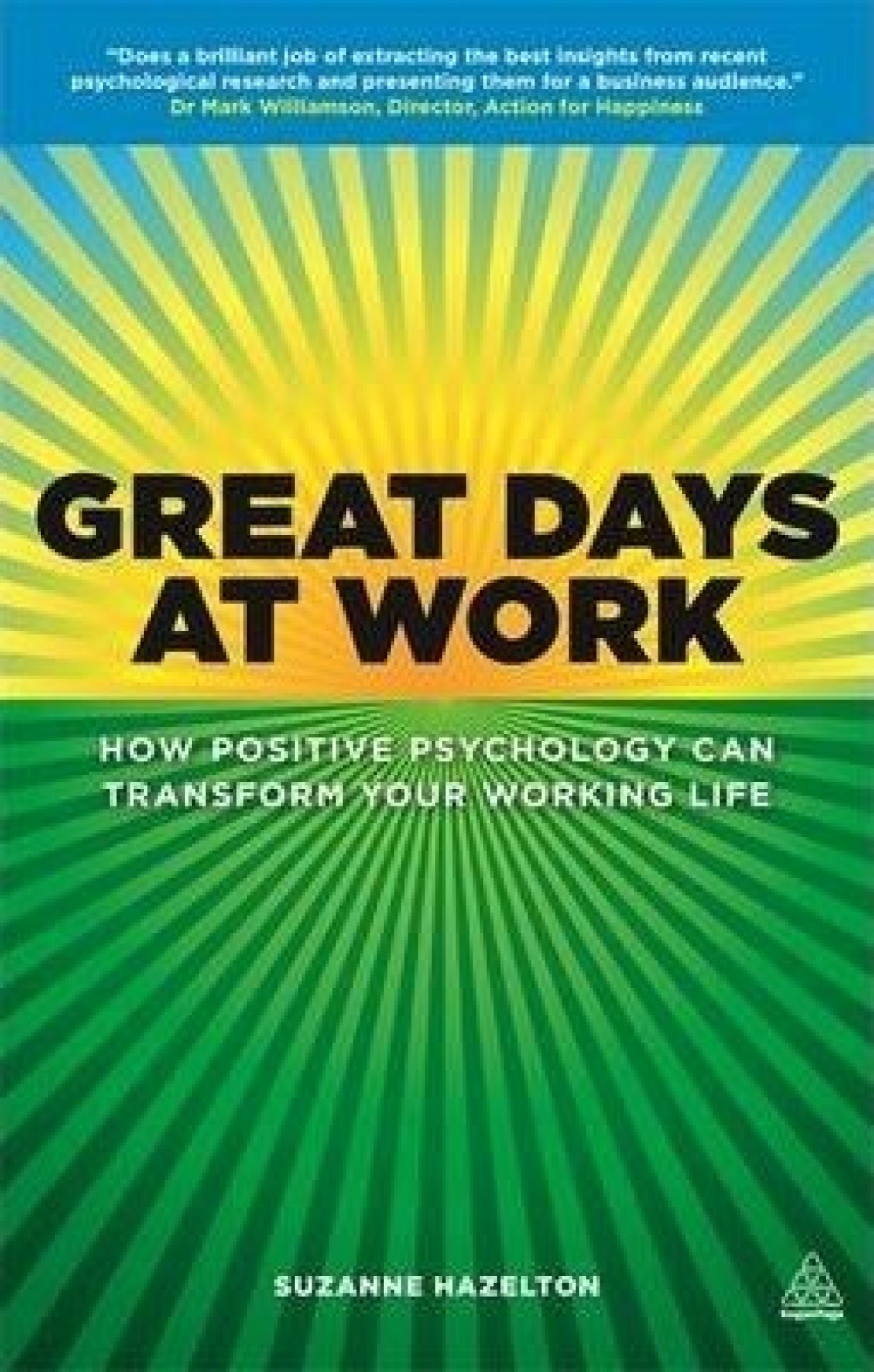As most of us spend at least a third of each weekday at work, Suzanne Hazelton, a coach, trainer and consultant who works to help people thrive at work, pored over the latest insights in positive psychology to create this guide, believing that if we try to improve our wellbeing at work, the positive benefits will spread into the rest of our lives.
The book is very easy to read, and for the most part you can dip into the chapters that you feel are most relevant to you. Hazelton reframes our idea of "success" and posits that there is no true success without happiness. It is for this reason she believes both employers and employees need to spend more time actively working to ensure the workplace, whatever it may be, promotes the wellbeing of everyone in it – when people feel engaged, involved and hopeful about the work they do, success almost inevitably follows.
Almost everything Hazelton says is backed up by references to major studies, the cumulative effect of which is meant to reassure us that there are some broad, fundamental truths to be uncovered even when we don’t feel that specific studies relate very well to us as individuals. The result is that the book reads somewhat like a very long lit review.
I was troubled by the author’s endorsement of Felicia Huppert’s idea that government and mental health charities should not focus on improving the mental health and wellbeing of under-privileged people (who she refers to as "the lowest in our society"), but instead work to increase the wellbeing of the privileged, the idea being that this will then trickle down to those less fortunate. I found this theory simplistic and, as I read on, I realised this book is really written primarily for people in what the author calls “the higher levels of society” – people who have no real barriers to happiness except those they create for themselves. It is not a book for any one experiencing poverty, deprivation, family stress or violence, ill-health or any of the other myriad of reasons why some of us may not always have great days at work.
However, I did find there were many useful pieces of advice in the book. I appreciated the real, practical suggestions for improving wellbeing at work and have incorporated some into my own working life. The book has plenty of real-life examples to illustrate the theories the author is explaining, and I was particularly interested in the author’s take on the value of goal setting and how better communication with colleagues can improve your wellbeing. It’s a bit of a mixed bag, but worth a read if you’re struggling to enjoy your work and would like some tried and true suggestions to enjoy better days at work.
Reviewed by Sophia Graham, Senior Communications Officer, Mental Health Foundation
I Need Help Now
Help for you or someone important to you
More

